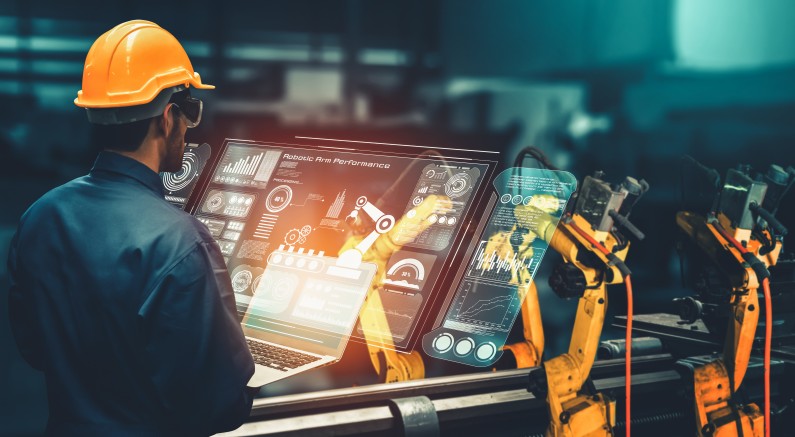Industry 4.0 – buzzword, concept or reality? Hardly any trend is as complex and includes so many different technologies and concepts as the idea of the fourth industrial revolution. But what exactly is it all about? Which terms are essential to know and where does Germany stand in terms of Industry 4.0?
In part I of our two-part series, we will take a look at the most important topics, trends and technologies that are key to a successful communication strategy for the Industry 4.0.
Industry 4.0 – Viva la (industrial) revolution
Industry 4.0 is nothing less than the revolution of the entire way we understand the term “industry”. Digital networks and electronic solutions now connect the previously separated units of machines, products, and processes empowering industrial plants to act smart and autonomously.
The idea of intelligent machines can evoke the familiar images of the Matrix. Although the notion of a world dominated by smart robots seems a little far fetched, some might be surprised how close we actually are to our Sci-Fi dreams. In Industry 4.0, factories are supposed to be autonomous and able to communicate and develop further without any human intervention. They think and act in a goal-oriented manner and can even react independently to customer requests. Smart factories in the automotive sector, for example, can already detect whether customers have opted for a different roof or an alternative mirror design at the last minute and incorporate these changes fluidly into the production process without human intervention.
Humans – opportunities and risks
The fear that smart machines could replace human employees is widespread and a recurring theme in the discourse surrounding artificial intelligence. However, this approach can be quickly refuted thanks to synergies that artificial intelligence creates together with their human colleagues.
Human employees set up processes, maintain them and only intervene if the system has downtimes or errors. In this way, the industry of the future can optimize processes, increase production rates and reduce downtime. Human employees can use their resources for more advanced tasks such as developing new products, maintaining sales channels, and improving production processes, thus significantly increasing the efficiency and profitability of companies. This is a crucial factor for the development of sales, the supply of goods and ultimately, the pricing of all existing industries.
Smart Factory, the holy grail
The smart factory is basically the physical embodiment of Industry 4.0: an autonomous production plant that can communicate independently with other plants and machines while being capable of learning and developing independently. All technologies and concepts relating to Industry 4.0 are part of the Smart Factory making it the poster child of the digital revolution.
The fictional example of the machine operated city from Matrix with its absolut independence from human intervention, represents the ultimate version of the smart factory. In real life, we are far away from such a dystopia, as the decisions of human teams precedes over those of the machines. Unlike in the cult film Matrix, the real Smart Factory naturally only wants what is best for us humans. The machines serve us, not the other way around.
Big Data, the elixir of life
Without sufficient data and information, the systems within the Smart Factory would have no foundation on which to build their intelligent algorithms and programmes. Data trains AI systems and provides automated processes with a foundation for purposeful decisions. Without Big Data, none of the applications in the Smart Factory would be possible. In other words, data is the fuel that allows the brain of the Smart Factory to function and evolve.
Industrial IoT, the switchboard
As in any good relationship: Communication is key. Smart factories are no exception to this thesis as the different machines must be able to communicate clearly and precisely with each other. IIoT and its individual components form the communication basis of the Smart Factory. It makes it possible for all machines to stay connected without interruption and independently of public networks. A crucial aspect is that IIoT makes it possible to connect industrial plants even in areas with no or only very poor internet or broadband coverage, such as deserts or mountainous regions. IIoT providers created private mobile networks for this purpose, which can be used via special SIM cards. They enable interference-free communication between plants, even under harsh environmental conditions.
Where does Germany stand in terms of Industry 4.0?
The fourth industrial revolution is particularly relevant for Germany, as the manufacturing and processing industry, with 7.1 million employees and an annual turnover of 2.1 billion euros, is one of the most important cornerstones of the German economy. According to a BITKOM study from May 2020, 59 percent of German industrial companies were already using Industry 4.0 solutions at the start of the Covid19 pandemic, and another 22 percent were planning to introduce corresponding tools and processes. The last two pandemic years have once again significantly accelerated this development. So one thing is clear: Industry 4.0 has come to stay.
Industry 4.0 is the future –– but at the same time, it is also a complex concept that is not always easy to explain. PIABO has made it its business to communicate multi-layered, technological content in such a way that it can be understood correctly in every context. We would be happy to accompany you on your journey into the world of Industrie 4.0 communication. If you have any questions, please get in touch with Sybille Zimmermann.


